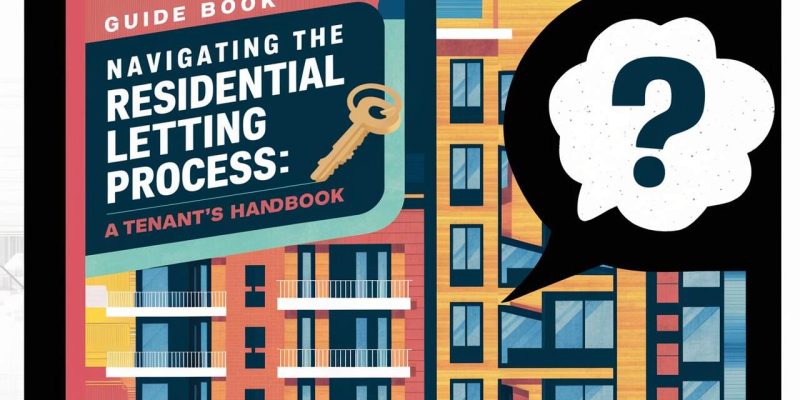Renting out property in the UK must be one of the most exciting but, at the same time, daunting experiences in life. Because the demand for letting properties is continuously on the rise, understanding all the ins and outs of the residential letting process is a must. This guide equips tenants with all the necessary knowledge, right from the property search process to signing a tenancy agreement, that will enable them to effectively take on the rental market in the UK, including considerations for property valuation.
Understanding Your Needs
Before so doing, evaluate what your needs and preferences are in the rental market. In these questions, the position, budget, and size of the property are also being considered along with amenities. First of all, make up a checklist of the most required features to make your search more organised. These considered, among other things, local distances to work or school, proximity to public transport, availability of food shops, and parks and leisure facilities to the overall feel of the neighbourhood. Additionally, factor in your financial situation and determine a realistic budget for rent and associated expenses.
Searching for Properties
Searching for properties with the assistance of expert estate agents can significantly streamline the process and provide valuable insights. Estate agents possess in-depth knowledge of the local property market, including current trends, pricing dynamics, and available inventory. Their expertise allows them to match tenants with properties that align closely with their preferences and requirements. Additionally, estate agents often have access to exclusive listings not readily available to the public, expanding the pool of potential options for tenants. Moreover, they can offer guidance and advice throughout the search process, helping tenants navigate complexities such as negotiating terms, understanding legal documentation, and assessing property suitability. By leveraging the expertise of estate agents, tenants can save time and effort while gaining access to a wider range of rental opportunities, ultimately enhancing their overall renting experience.
Viewing Properties
Once you have shortlisted the properties that you would like to view, make an arrangement to view the properties. Accompany either the landlord or the letting agent on tours to actually view the properties. Look out for areas within the property such as damages and maintenance issues. Good heating should be in place to cover heating. The plumbing and electrical systems should be functioning in the place. Dampness, molds, and other pests should be kept away from the place. There are, in addition, other things which indicate some security, for example, locks to the doors and windows. Don’t hesitate to ask questions about the tenancy agreement, utility bills, and any other relevant details.
Understanding Tenancy Agreements
Tenancy agreement, on the other side, may be outlined as the contract between a tenant and landlord. In an agreement, it outlines the terms and condition of the tenancy with respect to rent amount, period, and duties of the parties involved. Read the agreement through and make sure all problems are resolved before it gets to the point of signing. Watch out for critical terms on, for instance, the length of the tenancy, the rent payment program, the period of notice to terminate the tenancy, and procedures to settle disputes. Seek legal help or arrange for a discussion with the landlord if you are concerned about any specific clauses or provisions.
Deposits and Rent Payments
In the UK, the great majority of landlords require a deposit as security, along with advance rent before tenancy commences. The security deposit is usually one month’s rent paid in advance by the tenant and is given to the landlord as security or protection for him in case of damages or unpaid rent. You should ensure that the deposit is in a scheme approved by the government, as required by law. The landlord should give information about the scheme within 30 days of when the deposit should have been paid. Clarify the preferred way to pay the rent with the landlord, whether it is through bank transfer or direct debit.
Tenant Rights and Responsibilities
As a tenant, you have certain rights and responsibilities that must be upheld throughout the tenancy. These include:
- Paying rent on time: Ensure that rent payments are made promptly according to the terms of the tenancy agreement.
- Report any required maintenance quickly: You need to report to the landlord or letting agent of any needed repair or maintenance as soon as you know that something needs to be done.
- Respecting the property and neighbors: The rental property has to be treated with respect, and any disturbances to neighbors should be avoided.
- Some terms of the tenancy agreement: Abide by the regulations and obligations, which are covered by the tenancy, such as subletting and even conducting home improvements.
Inventory and Check-In
Check the inventory of the property against the actual condition and any furnishings in it before moving in. This will avert disputes over damages at the end of the tenancy. Make sure that the report of the inventory is signed by you and the landlord or letting agent, and always keep a copy for yourself. Add another piece of evidence with photos or a video of the property. However, you should try to note all the pre-existing damages or defects with the landlord or letting agent and come to an agreement should you find any during the check-in process.
Utility Bills and Council Tax
You shall be under an obligation to set up accounts with the utility providers on commencement of the tenancy so as to avoid any service disruptions from accruing. It is important to make sure that the letting agent or landlord has detailed with you what the utility bills and council tax payments are, during the tenancy. Keep an eye on the meters and verify while checking the use of utilities, so that your consumption remains within the budgeted parameters. It is better that you try to shift to energy-saving gadgets or practices so that your utility cost comes down, and at the same time, there is not much damage to the environment.
Repairs and Maintenance
This is a legal requirement: landlords are required to make the property secure and fit for you to live in. If anything such as plumbing problems or electric faults occur, let your landlord or letting agent know as soon as you become aware of the situation. Document your communication in writing or via email to maintain a record of the issue and any subsequent actions taken. Should the landlord not address the problem within a reasonable time, it could give you a reason to escalate the complaint or even seek legal advice.
End of Tenancy
When the tenancy is close to running out, contact the landlord or letting agent and let them know what you plan to do—renew or terminate. You should ensure that you have served the right period of notice according to the tenancy agreement. Arrange your move well in advance: from packing stuff and ordering removal services to sorting organizational issues. Organize a final property inspection with the landlord or letting agent to assess the condition and agree on matters still to be rectified. Make cleanings and repairs so that the property is returned to original conditions of when first moving in.
Conclusion The whole process of residential letting in the UK can seem quite overwhelming for a new tenant in the country. But once the tenant gets to know the nitty-gritty of the process and gets equipped with relevant details, then proper decisions can be weighed and the process made easy for the tenant. You get to know what you are entitled to do, what you are obligated to do, efficient communication with the landlord or letting agent, and finally, you get to keep yourself organized during the course of the tenancy so that the rented property feels like home. Remember, you can always seek advice from those reputable sources: Citizens Advice or Shelter in case you got stuck at some point.













Comments